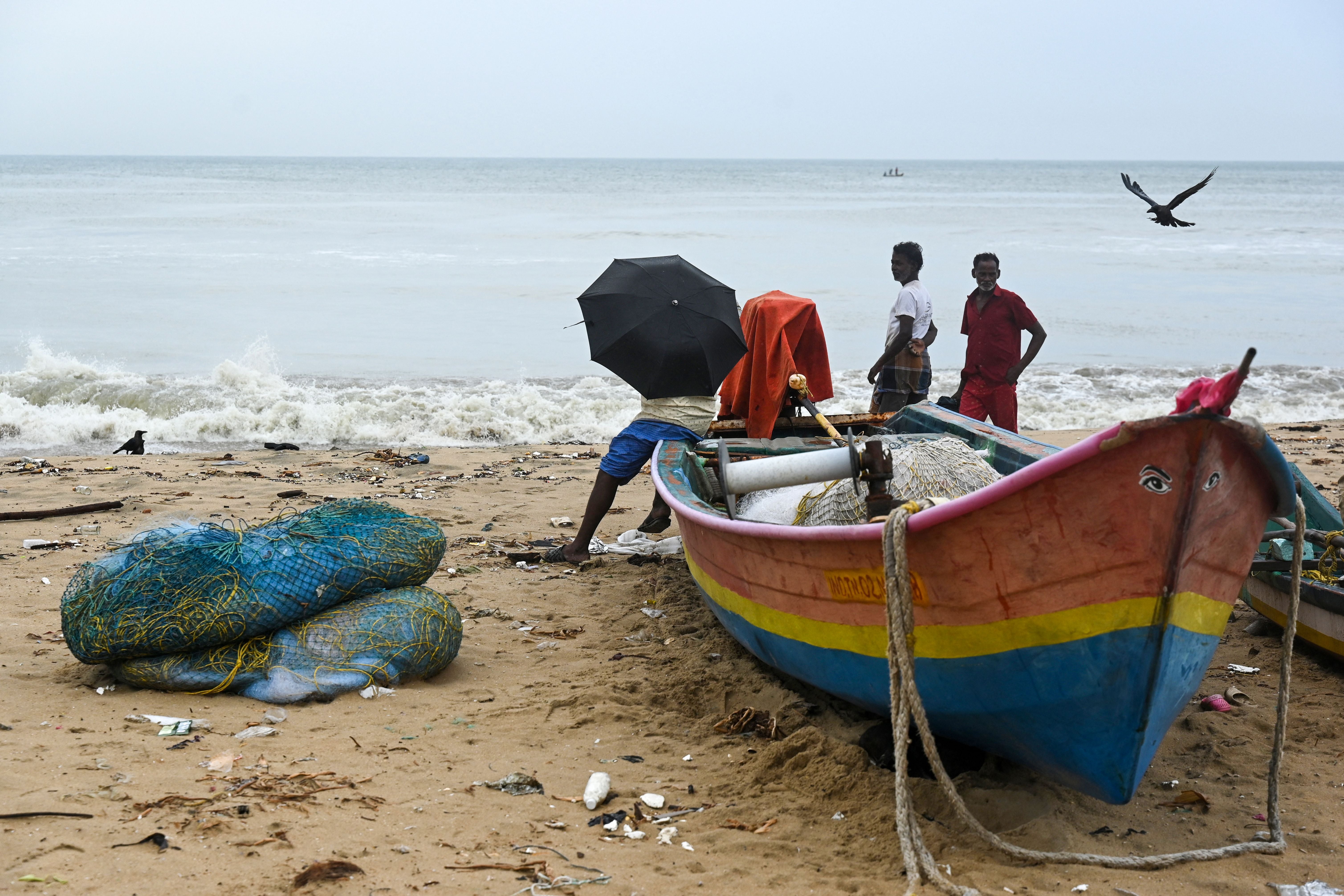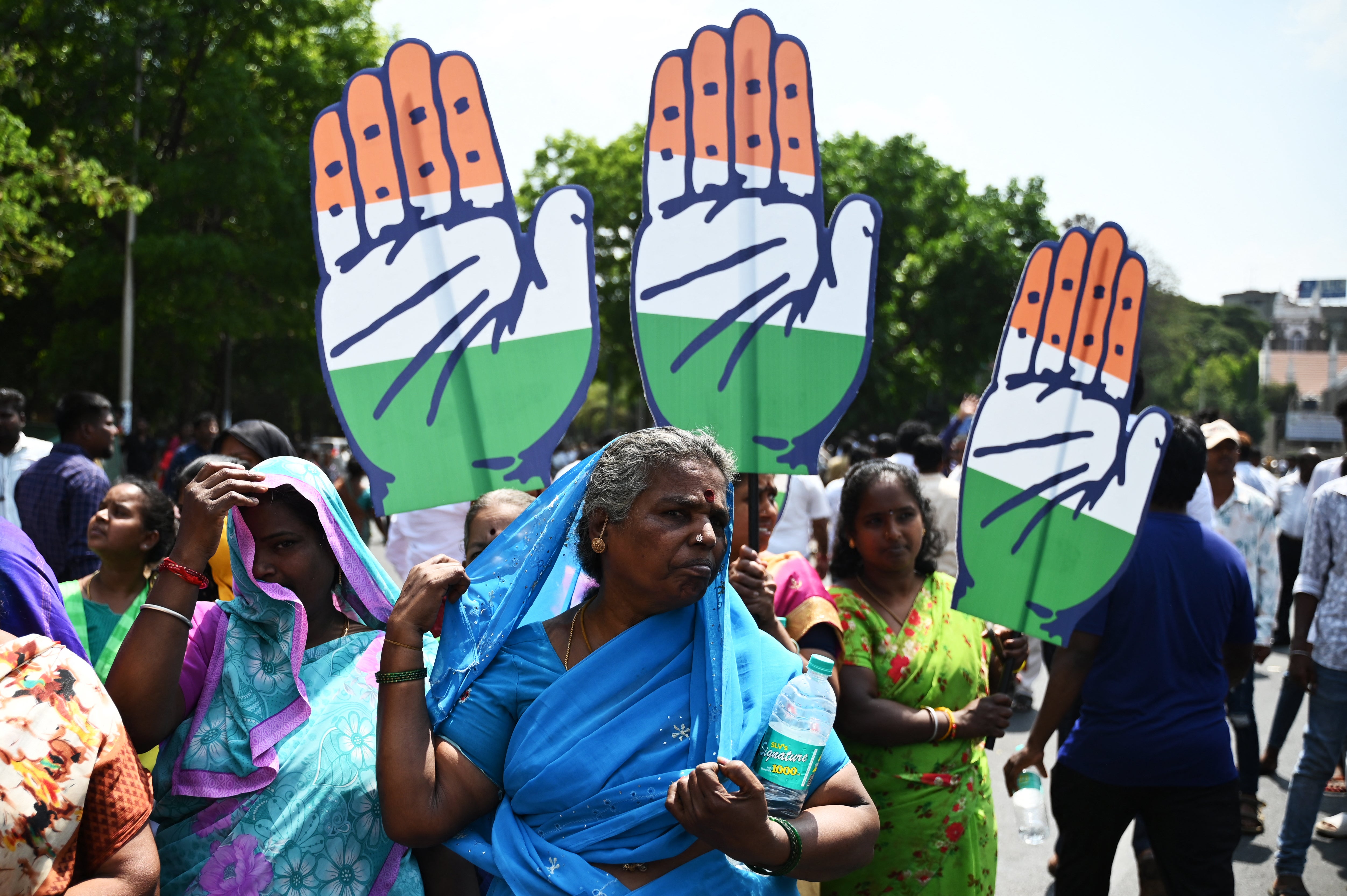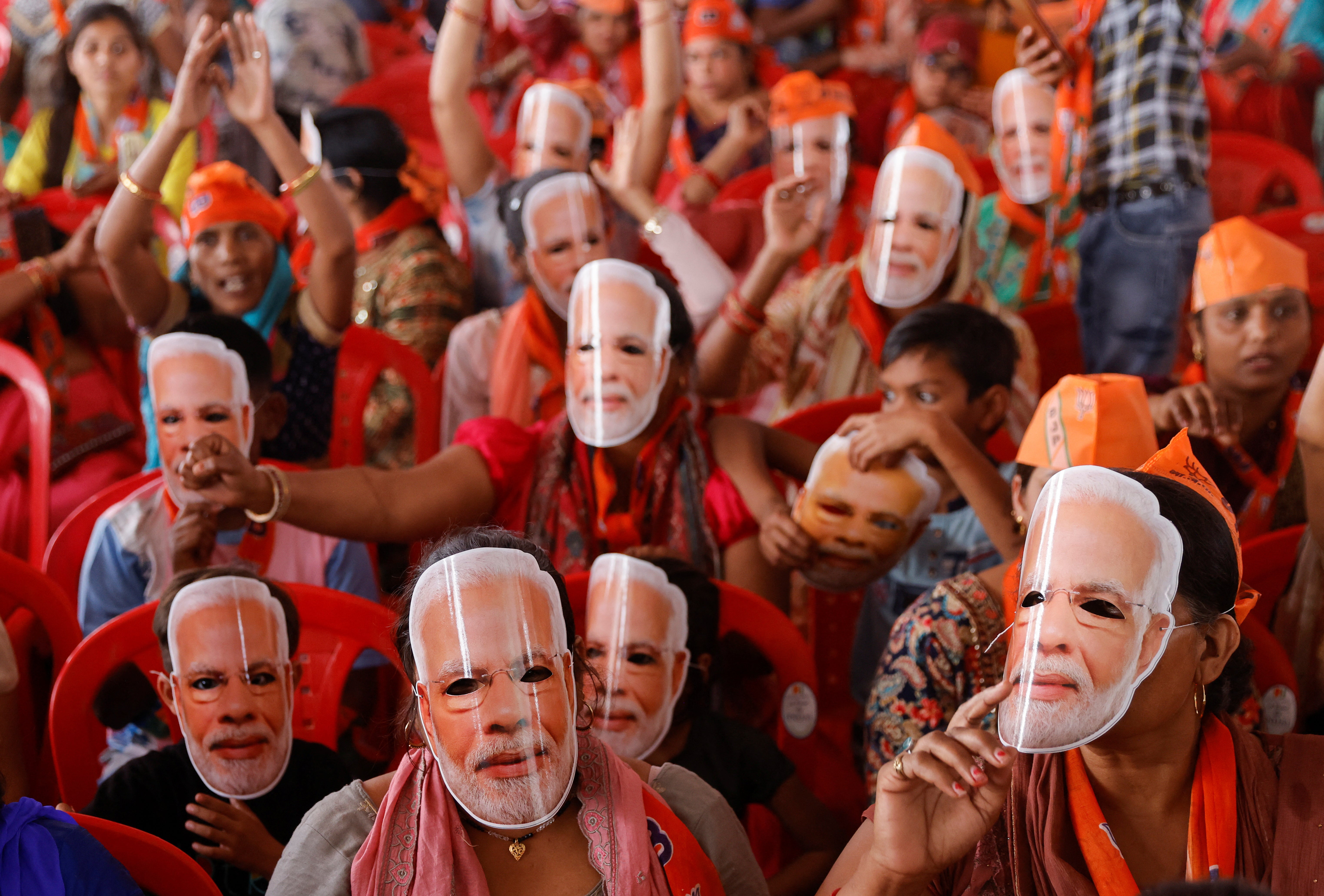Why a tiny uninhabited Sri Lankan island is taking centre stage in India’s election
Narendra Modi is appealing to his electoral base by drawing attention to a 1970s deal signed off by Indira Gandhi. Maroosha Muzaffar reports

A bizarre row over events from 50 years ago is emerging as a major issue in India’s election campaign. With voting set to begin in just over two weeks’ time, prime minister Narendra Modi and his Bharatiya Janata Party (BJP) have attacked the country’s main opposition for handing over a small, uninhabited island to Sri Lanka in 1974.
Katchatheevu is surrounded by rich Indian Ocean fisheries, and it features a Catholic church, an annual pilgrimage to which attracts devotees from both India and Sri Lanka. It is otherwise unremarkable, and an unlikely flashpoint for parties to fight over in an election that will directly affect the lives of 1.4 billion Indians.
India ceded its claim on the island to its southern neighbour under a maritime agreement signed by the government of Indira Gandhi in 1974. It was a pragmatic decision at the time, but the idea of giving up even a tiny sliver of sovereign Indian territory is now unthinkable to Modi’s right-wing nationalist base.
The issue has come to the surface partly because of a spike in clashes between fishermen from the two countries. The fishing grounds around Katchatheevu – which lies 21 miles from India, in the Palk Strait – have historically served both Indian and Sri Lankan fishermen. In recent years, disagreements over fishing rights have heightened tensions, and Sri Lanka’s navy seized more than 240 Indian fishermen last year alone.
Modi and his party have focused on a Times of India report analysing the background to the Congress party’s decision to give the island up. Government records, obtained by Tamil Nadu’s BJP chief K Annamalai, include comments attributed to India’s first prime minister, Congress’s Jawaharlal Nehru, indicating his lack of regard for the island’s importance.

It also implicates the local Dravida Munnetra Kazhagam (DMK) party, which is now in alliance with Congress and rules Tamil Nadu, the southern state closest to Katchatheevu. The Times report alleges that, in 1974, the DMK secretly consented to the agreement ceding Katchatheevu to Sri Lanka despite opposing it in public.
It creates an opportunity for the BJP to go on the attack against both the national and regional opposition in Tamil Nadu, which is seen as a key battleground state and is among the first to vote in India’s seven-phase election, which begins on 19 April.
Modi posted on X (formerly Twitter) earlier this week that giving up Katchatheevu was a “callous” decision that had “harmed the interests of our poor fishermen and fisherwomen”.
“Rhetoric aside, DMK has done NOTHING to safeguard Tamil Nadu’s interests,” Modi said. “New details emerging on #Katchatheevu have UNMASKED the DMK’s double standards totally.
“Congress and DMK are family units,” Modi posted. “They only care that their own sons and daughters rise. They don’t care for anyone else.”
Modi’s comments led to a war of words between the BJP and Congress that continued through the week.
“You have suddenly woken up to the issues of territorial integrity and national security in your 10th year of misrule,” Congress chief Mallikarjun Kharge posted on X. “Perhaps, elections are the trigger. Your desperation is palpable.”
He reminded Modi that the BJP government had transferred 111 enclaves to Bangladesh as a “friendly gesture” under a land boundary deal signed in 2015.
Modi’s foreign minister, S Jaishankar, criticised both the Congress and the DMK for the Katchatheevu deal, claiming that the transfer of the territory to Sri Lanka had over the years led to the seizure, detention or apprehension of Indian fishermen and fishing vessels by the island nation.
“In the last five years, the Katchatheevu issue and the fishermen’s issue have been repeatedly raised by various parties in parliament,” he told reporters in Delhi on Monday. “The Congress and the DMK have approached this matter as though they have no responsibility for it,” he added. “We now know not only who did it, but also who hid it.”
Annamalai, the Tamil Nadu BJP leader, had previously claimed that the Modi government was taking steps to reclaim the territory. Jaishankar deflected a question about whether the Indian government intended to take the island back, saying the matter was in the hands of the Supreme Court.
Sri Lanka has played down the issue, with infrastructure minister Jeevan Thondaman telling The Indian Express that Colombo had not received any communication on the Katchatheevu issue from New Delhi.

“As far as Sri Lanka is concerned, Katchatheevu island falls within the Sri Lankan line of control,” he said.
A DMK party spokesperson said: “It is wrong to talk about an issue without studying its history. In 1974, the DMK held state-wide agitations and public meetings to oppose and condemn the ceding of Katchatheevu to Sri Lanka.”
Senior DMK leader RS Bharathi waded into the debate: if Modi really cared about Katchatheevu, he could have laid claim to the island during his 10 years in office, he said. “Why did not he take up the Katchatheevu issue?” Bharathi asked.
The DMK contends that the Gandhi government refused to consider its view before signing the 1974 deal, leading to protests by the party at the time.
In the 50 years since the agreement was signed, successive Tamil Nadu governments have repeatedly raised concerns about it. They have highlighted its impact on the livelihoods of fishermen, the socioeconomic stability of coastal communities, and the region’s cultural and social fabric.
MK Stalin, the current DMK chief minister of Tamil Nadu, has also cast a spotlight on the growing number of arrests of fishermen and boat seizures by Sri Lankan authorities, and urged Modi to deal with the matter through diplomacy.
“The traditional fishing waters that Tamil fishermen have relied upon for generations are getting increasingly restricted, making it difficult to sustain their livelihood [and] impacting the economic stability of these communities,” he said in a letter to Modi last year ahead of the visit of Sri Lankan prime minister Ranil Wickremesinghe. “This also threatens the cultural and social fabric of the region that revolves around the fishing industry.”
Join our commenting forum
Join thought-provoking conversations, follow other Independent readers and see their replies
Comments
Bookmark popover
Removed from bookmarks